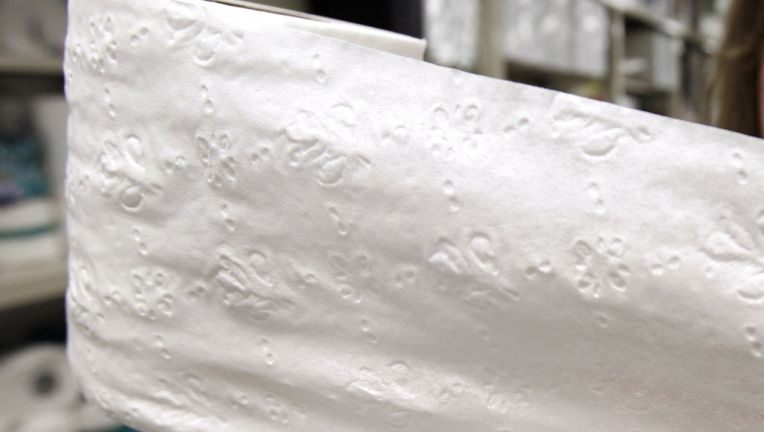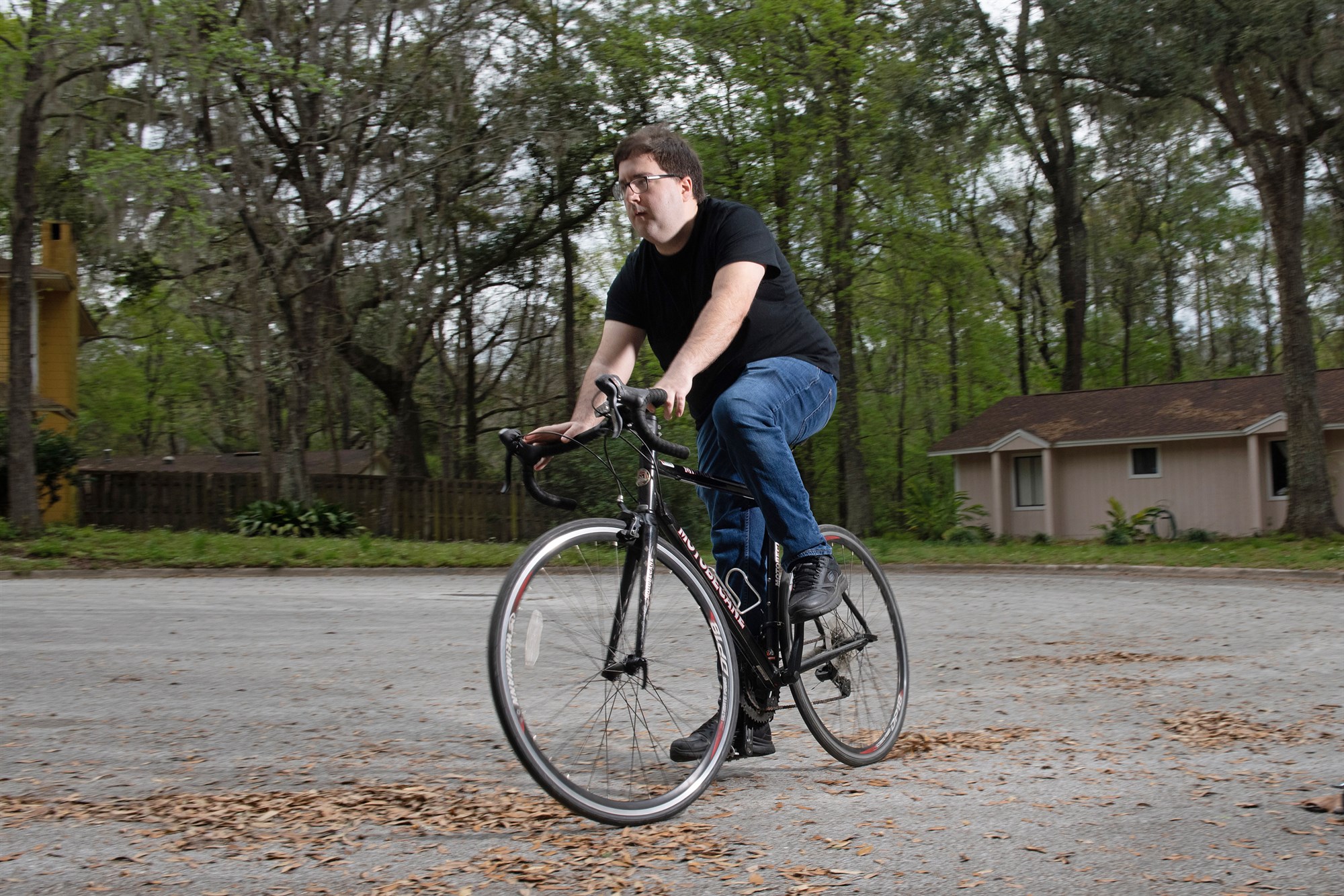McDonald’s is selling a new Big Mac with 4 patties
(CNN) — McDonald’s family of Big Mac sandwiches is growing with two new additions.
Beginning Thursday, McDonald’s is adding a Little Mac and a Double Big Mac to its menu, for a limited time. They are smaller and larger, respectively, versions of its flagship Big Mac hamburger.
The Little Mac is similar to a McDonald’s single cheeseburger: It’s a single patty with a dollop of Special Sauce. It costs $2.29.
The Double Big Mac, which costs $5.49, has four burger patties. It has 720 calories and 43 grams of fat.
By comparison, a regular-sized Big Mac, which has two patties, costs $3.99. It has 540 calories and 30 grams of fat.
McDonald’s has sold different versions of the Big Mac in the past. In 2017 and 2018, it sold the Grand Mac and the Mac Jr. The Grand Mac used only two patties, but they were larger than a typical piece of meat used on a regular Big Mac. It also had a larger bun.
This promotion could help McDonald’s restaurants create buzzy “new” menu items without the burden of ordering new ingredients or training staff on how to make them.
Breakfast has been a focus for McDonald’s as rivals ramp it up, but it hasn’t ignored its burger offerings. In the company’s most recent earnings call, CEO Chris Kempczinski said that premium burger sales, like the Quarter Pounder, has been a “standout performer” and promised more innovation.
Photo Credit: kmov.com
Man reportedly crashes into church, pours water on voting machines, forcing polling place change
ST. LOUIS (KMOV.com) — A polling place in North City suddenly had to move at the last minute Tuesday after police said a man crashed into a church and then poured water on voting equipment.
Around 11 a.m., the City of St. Louis said polling places for precincts 1, 4, 5, 8 in Ward 22 changed due to “unforeseen circumstances” outside the Board’s control. Voters who would normally vote at Friendly Temple Missionary Baptist Church at 5515 Martin Luther King should head to Pierre Laclede Junior Career Academy, 5821 Kennerly Avenue.
Earlier this morning, a man backed into the church’s fence, which damaged the church. He then poured water onto voting equipment and a 68-year-old woman. He was taken into custody shortly after. No one was injured, police said.
He was also taken to a hospital for evaluation.
Election officials said they were relocating voting machines so locals would be able to vote by noon.
OTHER VOTING ISSUES
Voters reported issues with a lack of paper ballots and glitches with the electronics. Rick Stream with St. Louis County Board of Elections said about 50 polling stations had issues connecting to WiFi and printers.
Stream said some polling stations had problems printing paper ballots in the new Ballot on Demand voting system. Paper ballots are not pre-printed. This is the first election where St. Louis County has used this new printing system county wide. All machines were tested a week before the election, Stream said.
With a lag in the WiFi making it hard to scan bar codes to print the paper ballots. Stream said poll works should have used the back-up manual system but not all poll workers followed their training.
Stream said the 3,200 poll workers were all properly trained. They had to take a four hour class but many are new and nervous while others called off after concerns about the coronavirus.
Another issue some poll workers faced was getting into the sites. Poll workers were supposed to arrive at stations at 5 a.m. In some cases, they arrived on time but weren’t able to get into the building.
St. Louis County said they have plenty of standby poll workers. They would like to have eight poll workers at every station but only have six per polling site.
Viewers told us there were issues at the polling station at Highcroft Elementary School in Chesterfield. A viewer told News 4 the polling station was allegedly turning people away.
We’ve also heard about issues at a St. Peters church and Gary Gore Elementary School in Jennings. Other issues have been reported at Affton High School polling place that printers were not working.
A News 4 viewer told us the St. Louis County Library Natural Bridge Branch didn’t open on time. Polling stations were supposed to open at 6 a.m.
We’re still waiting to hear back from the St. Charles County Board of Elections.
via: https://www.kmov.com/news/st-louis-primary-voting-issues/article_0a6619be-62c3-11ea-b21e-0f1ac6343fbc.html
Photo Credit: Arlice Thompson
Televangelist Jim Bakker sued by Missouri AG for reportedly selling fake ‘coronavirus cure’
JEFFERSON CITY, Mo. (KMOV.com) — Missouri Attorney General Eric Schmitt announced Tuesday his office filed a lawsuit against Jim Bakker and Morningside Church Productions, Inc. for misrepresentations about the effectiveness of “Silver Solution” as a treatment for 2019 novel coronavirus (COVID-19).
According to the suit, Bakker and Sherill Sellman, a “naturopathic doctor,” claimed “Silver Solution” can cure coronavirus on an episode of the Jim Bakker Show on February 12. The show was aired nationwide.
After the broadcast, and following representations made on Bakker’s website, the Food and Drug Administration and the New York Attorney General’s Office issued cease and desist letters to the show, ordering Bakker to stop making claims about the product as there was no scientific evidence to back them up.
The FDA stated there are currently no vaccines, pills, potions or other prescription or over-the-counter products to treat or cure coronavirus disease.
Schmitt’s suit is seeking a restraining order and permanent injunction against Bakker selling Silver Solution to treat the disease.
Photo Credit: truecrimedaily
‘Message of hatred’: Controversial stickers posted at LGBT Center of Raleigh
RALEIGH (WTVD) — The LGBT Center of Raleigh filed a police report after finding controversial stickers targeting the gay community on their doors Monday.
Meanwhile, a local LGBTQ event is facing increasing protests.
The stickers said gay people account for 67 percent of new HIV infections and one-third of child molesters, among other statements.
“It’s about the message,” said Lindsey Lughes, Executive Director of the LGBT Center of Raleigh. “It’s about the fact that they’re spreading a message of hatred.”
The name “Hundred Handers” is on the stickers. ABC11 tried finding information on that group but they seem to operate anonymously so it’s tough to track them.
Drag Queen Story Hour Raleigh has seen a growing number of protesters. Their last event drew more than two dozen protesters.
The event faced backlash since it began in June. But protesters quieted down then ramped back up this year.
“Since January, we’ve started seeing them,” said Elise Chenoweth, organizer of Drag Queen Story Hour Raleigh. “They’re coming to every event no matter where we go.”
The story hour goes on monthly at Medicine Mama’s Farmacy in Raleigh, with other events elsewhere.
“We bring stories of inclusion, diversity and kindness to children all over the area in Raleigh and surrounding areas,” Chenoweth said. “It’s disappointing to me that these kids can’t just go to a story hour and just enjoy it without having to walk past a bunch of people.”
She added that volunteers help shield the protesters from the children and volunteers.
“We choose not to engage any of the protesters,” Chenoweth said. “We just turn our backs to them and put positivity on our faces.”
The LGBT Center hopes the controversial words don’t turn into hateful actions.
“Our hope is always that, of course, it stays to stickers and words,” Lughes said. “We take safety precautions here at the center, of course, to make sure that we’re prepared if it ever, if anybody ever were to try to escalate any of these things… It’s just a reminder of why it’s so important for us to continue to do the work we do to fight the prejudice that LGBTQ people face all the time.”
Raleigh Police said the incident is under investigation and that the chief is working on meeting with leaders of the LGBT community.
via: https://abc11.com/society/controversial-stickers-posted-at-lgbt-center-of-raleigh/6000849/
Photo Credit:
100-year-old Chinese man recovers from coronavirus, the oldest patient to beat illness
A 100-year-old Chinese man has fully recovered from the coronavirus, making him the oldest known patient to pull through the deadly illness, state media reported.
The centenarian patient, who marked his milestone birthday last month, was discharged Saturday from a hospital in Wuhan, the epicenter of the outbreak, Chinese state news agency Xinhua reported.
He was admitted to Hubei’s Maternity and Child Health Care hospital on Feb. 24 with the coronavirus infection, the report said.
The man suffered from underlying health issues such as Alzheimer’s disease, hypertension and heart failure, the outlet said.
He was treated using antiviral medication, convalescent plasma therapy and traditional Chinese medicine, according to the report. The elderly man was then cleared along with more than 80 other patients Saturday to leave the hospital.
The contagious bug, which is officially known as COVID-19, can be particularly severe for the elderly population and those with pre-existing health conditions.
China has reported more than 80,000 cases and at least 3,000 deaths, mostly in the Hubei province.
Photo Credit: Reuters
Former pastor allegedly stole $200K from Texas church
The former pastor of a Houston church allegedly stole more than $200,000 from his congregation, according to a report.
Toddrick Deshaun Johnson, 36, has been charged with theft and using deception to secure an executive document relating to stolen parishioner funds from Paradise Missionary Baptist Church, according to court documents obtained by the Houston Chronicle.
Johnson, who was hired in 2017, forged the church president’s signature in financial documents and then stashed $201,552 into a secret account, board members alleged in court papers.
The hidden funds went undiscovered until a financial audit in 2018, the newspaper reports.
Johnson then left the church when he was confronted about the missing money and is “no longer returning calls,” court documents show.
Johnson, of Alvin, filed for bankruptcy last month, according to federal court records cited by the newspaper that indicated he has more than $40,000 in student loan debt.
The church’s board president, identified in court papers as Raymond Williams, told investigators he didn’t authorize Johnson or anyone else to open the account in his name, the newspaper reports.
Johnson also “obtained loans and filed false insurance claims” to deposit funds into the account, Williams told police.
The former pastor had not been arrested as of midday Monday, a Houston police spokesman told The Post.
Church officials, meanwhile, could not be reached early Monday to discuss the accusations.
via: https://nypost.com/2020/03/09/former-pastor-allegedly-stole-200k-from-texas-church/
Photo Credit: Google
Parking spot beef leads to deadly Atlanta mall shooting
A man was killed after a parking dispute at an upscale Atlanta mall, police said.
The victim, believed to be about 25 years old, was found lifeless with a gunshot wound to the head late Sunday outside Lenox Square mall in the city’s Buckhead section, Atlanta police said.
The unidentified man, who lived out of state, had argued with four suspects in the parking lot earlier in the afternoon, but eventually went inside the mall. He was shot when he returned to his car, according to a preliminary police report.
“At one point one of the suspects pulled a firearm and shot the victim at least once,” the report reads.
The four assailants then hopped into a car and tried to drive off, but crashed before getting out of the parking lot. They tried to run off, but an off-duty Cobb County police officer managed to grab one suspect, police said.
That suspect was later released without charges, police spokesman Anthony Grant told The Post early Monday.
“At this time, investigators are seeking four persons involved in the incident,” Grant wrote in an email. “The investigation remains ongoing.”
Detectives are still working to determine whether the victim was alone in his car at the time of the slaying, Grant said.
The incident marked the fourth shooting at the mall in as many months, WGCL reports.
“This is a premier retail space for people to go from all over the metropolitan Atlanta area,” Atlanta police Maj. Andrew Senzer told the station. “This is a prime concern for us. We have dedicated a tremendous amount of [police resources] to this area and we will continue to do so until we can take back this space.”
One witness, meanwhile, said he saw the entire ordeal unfold after having dinner at the popular mall.
“We saw a gentleman standing with a gun, and then shots fired,” Gino Vowin told WSB-TV. “And then it kind of went hectic. We were just having dinner at the Cheesecake Factory and all you see are cop cars pulling up.”
via: https://nypost.com/2020/03/09/parking-spot-beef-leads-to-deadly-atlanta-mall-shooting/
Photo Credit: nypost.com
Queen Mary BioEnterprises Innovation Centre is looking for 24 volunteers to inject with coronavirus and participate in their flu camp
They will be paid about $4,588 for their troubles.
This isn’t the latest twisted Stephen King novel. Rather, it’s an attempt by medical research and development company Hvivo to create a vaccine for the deadly disease which has killed more than 3,800 across the globe.
The human guinea pigs — who will receive a battery of tests before being selected — will be given two of the virus’ weaker strains, 0C43 and 229E, which should cause mild respiratory symptoms. They will then be given new or existing vaccines.
Doctors — who will wear protective clothing and ventilators — will analyze the patients’ responses to the vaccine, and the results will help researchers focus on the most effective treatments in order to fast-track them.
Aside from the actual downside of being sick, participants must stay in quarantine for two weeks, eat a restricted diet and avoid human contact and exercise.
The East London-based company is just one of 20 firms joining the global race to find a vaccine that could be ready by next winter, reports the Times of London.
“Drugs companies can get a very good idea within a few months of starting a vaccine study whether it’s working or not, using such a small sample of people,” said Andrew Catchpole, Hvivo’s chief scientist.
The testing will begin once Hvivo gets the go-ahead from UK’s Medicines and Healthcare products Regulatory Agency.
Photo Credit: nypost.com
Family accidentally orders 12 years’ worth of toilet paper
AUSTRALIA – There’s nothing worse than not having enough toilet paper when you need some, so it’s always a good idea to have some extra rolls stored up.
This might be overkill, however.
A family in Australia is sitting on a mountain of toilet paper after making a mistake while ordering online. Fortunately for them, this error may have occurred at a very fortunate time.
Haidee Janetzki meant to order 48 rolls of toilet paper, but instead ordered 48 boxes, Reuters reports. Now, she and her family are the proud owners of 2,304 rolls of toilet paper, which they have stacked up in their garage.
Australia is currently facing a shortage of the bathroom necessity, ABC reports. This is likely due to Australians stockpiling everyday items after hearing about reports of the coronavirus outbreak. This has forced some factories to ramp up production to a 24-hour-a-day schedule.
“I’m relieved my friends and family don’t have to worry about it,” Haidee Janetzki told Reuters.
Chris Janetzki shared a video of his family’s unexpected toilet paper haul on Facebook, where he showed Haidee sitting on a throne made out of the large boxes of toilet paper.
According to the family, they don’t plan on using all of the toilet paper themselves (which they say would take them about 12 years to do). Instead, the family says they plan on selling the extra boxes in a fundraiser for the same price they paid.
It’s always better to have too much toilet paper.
via: https://www.fox35orlando.com/news/family-accidentally-orders-12-years-worth-of-toilet-paper
Photo Credit: fox35orlando.com
Google tracked his bike ride past a burglarized home. That made him a suspect.
The email arrived on a Tuesday afternoon in January, startling Zachary McCoy as he prepared to leave for his job at a restaurant in Gainesville, Florida.
It was from Google’s legal investigations support team, writing to let him know that local police had demanded information related to his Google account. The company said it would release the data unless he went to court and tried to block it. He had just seven days.
“I was hit with a really deep fear,” McCoy, 30, recalled, even though he couldn’t think of anything he’d done wrong. He had an Android phone, which was linked to his Google account, and, like millions of other Americans, he used an assortment of Google products, including Gmail and YouTube. Now police seemingly wanted access to all of it.
“I didn’t know what it was about, but I knew the police wanted to get something from me,” McCoy said in a recent interview. “I was afraid I was going to get charged with something, I don’t know what.”
There was one clue.
In the notice from Google was a case number. McCoy searched for it on the Gainesville Police Department’s website, and found a one-page investigation report on the burglary of an elderly woman’s home 10 months earlier. The crime had occurred less than a mile from the home that McCoy, who had recently earned an associate degree in computer programming, shared with two others.
Now McCoy was even more panicked and confused. He knew he had nothing to do with the break-in ─ he’d never even been to the victim’s house ─ and didn’t know anyone who might have. And he didn’t have much time to prove it.
McCoy worried that going straight to police would lead to his arrest. So he went to his parents’ home in St. Augustine, where, over dinner, he told them what was happening. They agreed to dip into their savings to pay for a lawyer.
The lawyer, Caleb Kenyon, dug around and learned that the notice had been prompted by a “geofence warrant,” a police surveillance tool that casts a virtual dragnet over crime scenes, sweeping up Google location data — drawn from users’ GPS, Bluetooth, Wi-Fi and cellular connections — from everyone nearby.
The warrants, which have increased dramatically in the past two years, can help police find potential suspects when they have no leads. They also scoop up data from people who have nothing to do with the crime, often without their knowing ─ which Google itself has described as “a significant incursion on privacy.”
Still confused ─ and very worried ─ McCoy examined his phone. An avid biker, he used an exercise-tracking app, RunKeeper, to record his rides. The app relied on his phone’s location services, which fed his movements to Google. He looked up his route on the day of the March 29, 2019, burglary and saw that he had passed the victim’s house three times within an hour, part of his frequent loops through his neighborhood, he said.
“It was a nightmare scenario,” McCoy recalled. “I was using an app to see how many miles I rode my bike and now it was putting me at the scene of the crime. And I was the lead suspect.”A powerful new tool
The victim was a 97-year-old woman who told police she was missing several pieces of jewelry, including an engagement ring, worth more than $2,000. Four days after she reported the crime, Gainesville police, looking for leads, went to an Alachua County judge with the warrant for Google.
In it, they demanded records of all devices using Google services that had been near the woman’s home when the burglary was thought to have taken place. The first batch of data would not include any identifying information. Police would sift through it for devices that seemed suspicious and ask Google for the names of their users.
Kenyon said police told him that they became particularly interested in McCoy’s device after reviewing the first batch of anonymized data. They didn’t know the identity of the device’s owner, so they returned to Google to ask for more information.
That request triggered the Jan. 14 notice the technology giant sent to McCoy, part of its general policy on notifying users about government requests for their information. The notice was McCoy’s only indication that police wanted his data.
Gainesville police declined to comment.
While privacy and civil liberties advocates have been concerned that geofence warrants violate constitutional protections from unreasonable searches, law enforcement authorities say those worries are overblown. They say police don’t obtain any identifying information about a Google user until they find a device that draws their suspicion. And the information alone is not enough to justify charging someone with a crime, they say.
Google geofence warrants have been used by police agencies around the country, including the FBI. Google said in a court filing last year that the requests from state and federal law enforcement authorities were increasing rapidly: by more than 1,500 percent from 2017 to 2018, and by 500 percent from 2018 to 2019.
“It’s a great tool and a great technology,” said Kevin Armbruster, a retired lieutenant with the Milwaukee Police Department, where he oversaw the use of high-tech investigative work, including geofence warrants.
Milwaukee police have used Google geofence warrants to solve an array of crimes, including homicides, shootings, a string of robberies and kidnappings and a sexual assault involving an abduction, he said. “I would think the majority of citizens in the world would love the fact that we are putting violent offenders in jail,” Armbruster said.
There have been very few court challenges to Google geofence warrants, mainly because the warrants are done in secret and defense lawyers may not realize the tool was used to identify their clients. One exception is an accused bank robber in Midlothian, Virginia, who is fighting the charge by arguing the geofence warrant used against him was illegal. That case is pending.
‘You’re looking at the wrong guy’
Once McCoy realized his bike ride had placed him near the scene of the crime, he had a strong theory of why police had picked his device out of all the others swept up by the warrant. He and Kenyon set out to keep them from getting any more information about him ─ and persuade them that he was innocent.
Kenyon said he got on the phone with the detective on the case and told him, “You’re looking at the wrong guy.”
For most of his life, McCoy said, he had tried to live online anonymously, a habit that dated to the early days of the internet when there was less expectation that people would use their real names. He used pseudonyms on his social media accounts and the email account that Google used to notify him about the police investigation.
But until then, he hadn’t thought much about Google collecting information about him.
“I didn’t realize that by having location services on that Google was also keeping a log of where I was going,” McCoy said. “I’m sure it’s in their terms of service but I never read through those walls of text, and I don’t think most people do either.”
Just before the start of his ordeal, he’d listened to a call-in radio debate about the Department of Justice’s fight with Apple over access to an iPhone left by a Saudi national who’d gunned down several people at an air base in Pensacola, Florida, in December. He remembered some callers saying they had no problem with law enforcement having access to phone data, arguing that people had nothing to worry about as long as they didn’t break the law. Now McCoy thought the callers weren’t considering predicaments like his.
“If you’re innocent, that doesn’t mean you can’t be in the wrong place at the wrong time, like going on a bike ride in which your GPS puts you in a position where police suspect you of a crime you didn’t commit,” McCoy said.
On Jan. 31, Kenyon filed a motion in Alachua County civil court to render the warrant “null and void” and to block the release of any further information about McCoy, identifying him only as “John Doe.” At that point, Google had not turned over any data that identified McCoy but would have done so if Kenyon hadn’t intervened. Kenyon argued that the warrant was unconstitutional because it allowed police to conduct sweeping searches of phone data from untold numbers of people in order to find a single suspect.
That approach, Kenyon said, flipped on its head the traditional method of seeking a search warrant, in which police target a person they already suspect.
“This geofence warrant effectively blindly casts a net backwards in time hoping to ensnare a burglar,” Kenyon wrote. “This concept is akin to the plotline in many a science fiction film featuring a dystopian, fascist government.”
Cleared by the same data
The filing seemed to give law enforcement authorities second thoughts about the warrant. Not long afterward, Kenyon said, a lawyer in the state attorney’s office assigned to represent the Gainesville Police Department told him there were details in the motion that led them to believe that Kenyon’s client was not the burglar. The state attorney’s office withdrew the warrant, asserting in a court filing that it was no longer necessary. The office did not respond to a request for comment.
Kenyon said that in a visit to his office, the detective acknowledged that police no longer considered his client a suspect.
On Feb. 24, Kenyon dropped his legal challenge.
The case ended well for McCoy, Kenyon said, but “the larger privacy fight will go unanswered.”
Even then, Kenyon wanted to make sure police didn’t have lingering doubts about McCoy, whom they still knew only as “John Doe.” So he met with the detective again and showed him screenshots of his client’s Google location history, including data recorded by RunKeeper. The maps showed months of bike rides past the burglarized home.
In the end, the same location data that raised police suspicions of McCoy also helped to vindicate him, Kenyon said. “But there was no knowing what law enforcement was going to do with that data when they got it behind closed doors. Not that I distrust them, but I wouldn’t trust them not to arrest someone.”
He pointed to an Arizona case in which a man was mistakenly arrested and jailed for murder largely based on Google data received from a geofence warrant.
McCoy said he may have ended up in a similar spot if his parents hadn’t given him several thousand dollars to hire Kenyon.
He regrets having to spend that money. He also thinks about the elderly burglary victim. Police said they have not made any arrests.
“I’m definitely sorry that happened to her, and I’m glad police were trying to solve it,” McCoy said. “But it just seems like a really broad net for them to cast. What’s the cost-benefit? How many innocent people do we have to harass?”
via: https://www.nbcnews.com/news/us-news/google-tracked-his-bike-ride-past-burglarized-home-made-him-n1151761
Photo Credit: Agnes Lopez / for NBC News











